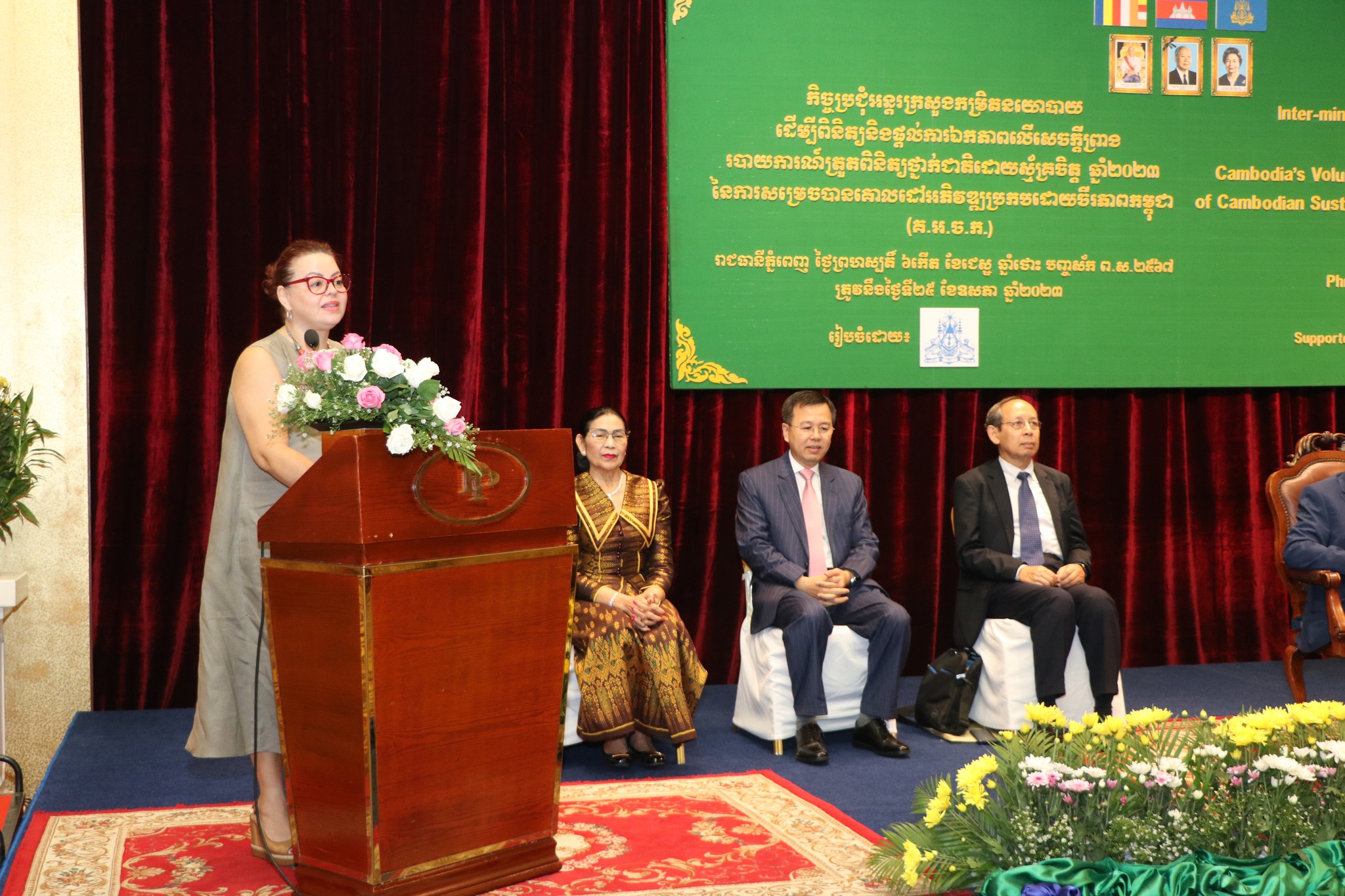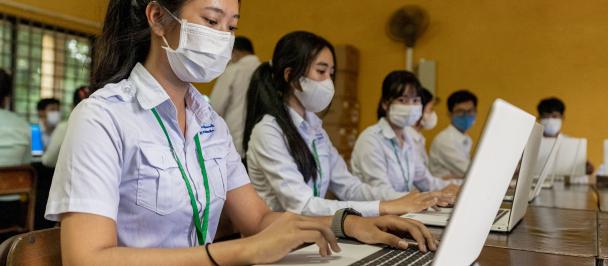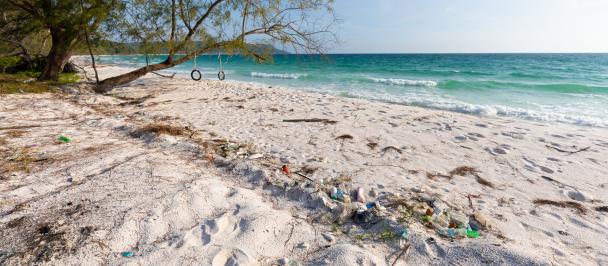Key Remarks by Ms. Alissar Chaker, UNDP Resident Representative
Inter-ministerial High-Level Meeting of the 2023 Voluntary National Review
May 26, 2023

Ms. Alissar Chaker (in beige dress)
Excellency Ketti Settha Pandita CHHAY Than, Senior Minister, Minister of Planning
Excellency TUON Thavrak, Secretary of State, the Ministry of Planning
Excellency THENG Pagnathun, Delegate of the RGC in charge of Director General of Planning
Excellencies, UN colleagues, Ladies, and Gentlemen.
I am delighted to join you today, representing UNDP and the wider UN family in Cambodia, in the Inter-ministerial High-level Consultation on the draft 2023 Voluntary National Review (VNR) with participation from high-level representatives from line ministries and public entities, development partners and civil society organizations. This turnout re-emphasizes our collective commitment to supporting the acceleration of the 2030 Agenda for Sustainable Development in the country.
I would also like to convey my sincere appreciation to the Royal Government of Cambodia, and particularly to the Ministry of Planning, for the leadership and diligent coordination role, collecting inputs from line ministries and public entities, development partners and civil society to produce the current draft presented today for validation.
Excellencies, ladies and gentlemen,
When the 2030 Agenda for Sustainable Development and its sustainable Development Goals (SDGs) were adopted in September 2015, the Member States of the United Nations committed to engage in a systematic follow-up and review of the implementation of the Agenda and its SDGs. A key element of this follow-up and review architecture is the preparation of Voluntary National Reviews (VNRs) and the presentation of their results to the international community at the High-Level Political Forum on Sustainable Development. The Voluntary National Review, subject of our meeting today, is a process where countries assess and share their national progress in implementing the 2030 Agenda, its SDGs, indicators, and targets in a manner that respects their universal, integrated and interrelated nature across the three dimensions of sustainable development (i.e., economic, social, and environmental dimensions). As reminder, VNRs are not an end, but a means that opens a wide window of opportunities to exchange experience, identify challenges, accelerate implementation, and mobilize multistakeholder support and partnerships for the implementation of the SDGs.
Concurrent crises, including the COVID pandemic, geopolitical tensions and the war in Ukraine, as well as the climate crisis, have delayed the implementation of the 2030 Agenda in many parts of the world. For Cambodia, the 2022 UNDP Human Development Report indicated the loss of nearly three years of human development gains between 2020 and 2021, a regression namely on health (SDG 3) and education (SDG4).
Not surprisingly, the General Assembly selected for 2023 the theme “Accelerating the recovery from COVID-19 and the full implementation of the 2030 Agenda for Sustainable Development at all levels”. Some SDGs were also selected to zoom into for thematic review during the 2023 High-Level Policy Forum, namely, SDG 6 on clean water and sanitation, SDG 7 on affordable and clean energy, SDG 9 on industry, innovation, and infrastructure, SDG 11 on sustainable cities and communities and SDG 17 on partnerships for the Goals.
Excellencies, Ladies, and Gentlemen,
This is the second time Cambodia undertakes this exercise. The first VNR, completed in 2019, reported 54% of the 148 defined indicators, while 35% of the indicators lacked data. A relevant change for the second VNR is that now 185 indicators are being tracked.
For this round, the UN system in Cambodia is a proud partner of the national effort to conduct a good national review that:
- Reflects the universality, integrated, and interrelated nature and dimensions of sustainable development (i.e., economic, social, and environmental dimensions), guided by the principle of Leaving No One Behind.
- Ensures meaningful stakeholder engagement, including private sector, civil society, academia, local government, and specific vulnerable groups, among others -many of you present here today.
- Is built on data and evidence, where there has been an important effort to generate and report information for most of the indicators.
- Reflects on planning, implementation, continuity from the first VNR and relevant institutional set-up, SDG-oriented budgeting, and relevant SDGs localization strategies.
- Captures the impacts, response, and effects of COVID on SDGs.
- Indicates the way for building froward better in line with the Decade of Action for ambitious and accelerated achievement of the Cambodia SDGs, and
- Informs and supports the Least Developed Country (LDC) graduation process foreseen in the very near future.
Excellencies, ladies and gentlemen,
The SDGs provide us with a visionary roadmap to attain sustainable prosperity, social inclusion, and equality, leaving no one behind, while, at the same time preserving our planet and natural assets. I strongly believe that solid partnerships would allow Cambodia to harness this ambitious vision and resume its growth trajectory, this time round, a trajectory which is more inclusive, resilient to shocks and climate risks, and based in nature-solutions. The COVID wake-up call was harsh and was mainly about inclusion and resilience!
Finally, I would like to note that the Cambodian SDGs have laid a good foundation for the implementation of the 2030 Agenda in Cambodia, but there is still a road ahead. While we all should celebrate achievements, this is not the time to slow down. On the contrary, this is the time to double down investments in Cambodian people, in resilience, in inclusive policies, in green and sustainable growth. I encourage the RGC to further increase the ambition on the CSDGs.
I wish you all a fruitful discussion for the rest of the day.
Thank you.

 Locations
Locations




